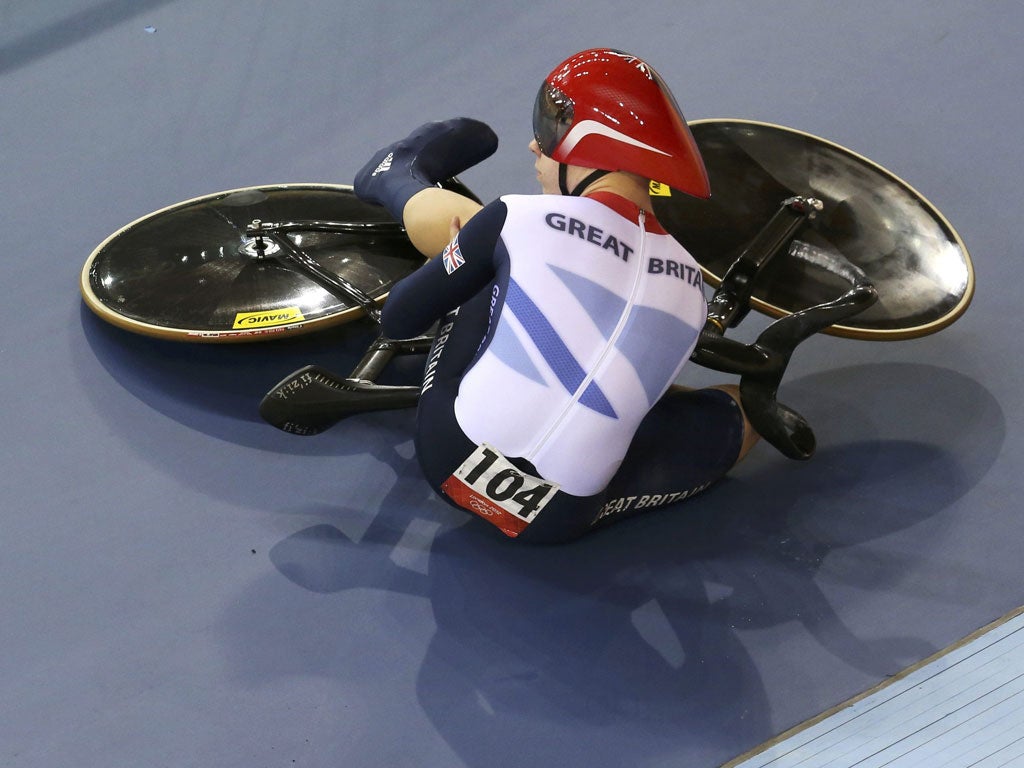Musa Okwonga: If they're Brits, we call it tactics. If not, it's cheating
There's the Corinthian ethos, there's bending the rules and there's plain dishonesty. Have the Olympics become too competitive?

Whenever competitors try to work around the rules of a sport, there is a thin line between being cute and being a cheat. Some athletes eye this line as carefully as they watch the edges of their own lanes: and others pole vault well clear of it. These Olympic Games have already seen plenty of participants both suspected of and criticised for morally dubious conduct. China's Ye Shiwen, the 16-year old double gold medallist, has been found guilty until proven innocent of doping by the ever-reliable court of Western public opinion. That same court has been somewhat less quick to conclude that Katie Ledecky, the 15-year old winner of the 800m freestyle, has been generously assisted by chemical friends. Why Ledecky – a wholesome all-American prodigy with an apple-pie smile – has been subjected to less scrutiny than Shiwen is anyone's guess.
Meanwhile, badminton players from China, Indonesia and South Koreahave been disqualified for trying to lose to their opponents, results which would have given them an easier draw in the following round. Great Britain's joy at a cycling gold medal for its men's sprint team was tempered by the revelation that Philip Hindes, who rode the team's anchor lap, may have deliberately crashed in order to gain a restart for his team.
As is often the case, the responses to these events have been more revealing than the events themselves. Broadly speaking, the authorities have condemned their acts, while athletes and team coaches have been fairly sympathetic. China's official delegation described them as "against the spirit of fair play", as Alan Budikusuma, who had won an Olympic badminton gold for Indonesia, revealed to the BBC that he had been told by his coaches to lose matches to better his team's chances. Elsewhere, British Cycling was quick to defend Hindes from any allegation of wrongdoing, suggesting his explanation for his crash – " I did it on purpose to get a restart … So it was all planned, really" – was lost in translation, since Hindes, born in Germany, had only recently begun to learn English.
Hindes received qualified support from a surprising corner, in the form of the French coach Florian Rousseau. "There was no cheating," said Rousseau. "However, I do think the rules need to be more precise … The fact that he [Hindes] did it on purpose is not very good for the image of cycling."
Both cases seem at odds with the words of Pierre de Coubertin's Olympic Charter, which states: "Every individual must have the possibility of practising sport … in the Olympic spirit, which requires mutual understanding with a spirit of friendship, solidarity and fair play." It's fair to wonder, though, if De Coubertin's vision as outlined in 1894 was impossibly idealistic. Many people will point slightly further back in time, to 1882 and the founding of the Corinthian Casuals football club, whose principles are seen as largely responsible for the modern idea of sportsmanship. Yet it's important to note that the Casuals' constitution, decreed the club should never take part in a competitive fixture. With respect, their vision of sport – as a wholly amateur pursuit – is possibly as far from the current incarnation of high-level athletics as could be imagined.
Rousseau, the French coach, instinctively knew this. Although he saw something ugly in Hindes' alleged intent, he also understood the pressures brought to bear by professional sport. Perhaps, then, it is more accurate simply to accept that cunning, cuteness or cheating – whatever shade of subterfuge it happens to be – is merely part of human nature, and will emerge under the harshest conditions.
Indeed, our societies have long revered those who have been underhand in achieving their goals: Diego Maradona's handball against England in the 1986 World Cup; more subtly, Michael Owen's tumble for a penalty against Argentina in the 1998 World Cup. In events where the margins for error are ever slimmer, being virtuous can be a huge impediment to winning.
Professor Lewis Hyde makes this point well in Trickster Makes This World, which examines the role of the artful dodger throughout history. He notes that "where someone's sense of honorable behaviour has left him unable to act, trickster will appear to suggest an amoral action, something right/wrong that will get life going again". Like a crashed bike, or a thrown badminton match.
However, those who would throw morality to the wind in pursuit of sporting glory should pause before they do so. Whenever athletes compete in elite events, they are fighting for two things: the first is the topmost place on the podium; the second is a legacy. It's easier to win the first than the second. Ultimately, a gold medal is no fun if you cannot be forever feted for receiving it: there is no person more oddly lonely in sport than the bitter winner. In baseball, for example, the Hall of Fame denies access to those whom it considers to have brought the sport into disrepute, no matter how spectacular their achievements on the field.
Maybe that is why we can forgive our idols for the odd moment of corner-cutting, as many of us can relate to it. And why we are especially harsh on those, such as steroid-takers, who have forged entire careers on doping. To ensure they are remembered fondly, it is essential that sporting winners retain their dignity: and, with that in mind, it seems that Pierre de Coubertin was on to something.
Musa Okwonga is a poet, broadcaster and author of 'A Cultured Left Foot'
Join our commenting forum
Join thought-provoking conversations, follow other Independent readers and see their replies
0Comments